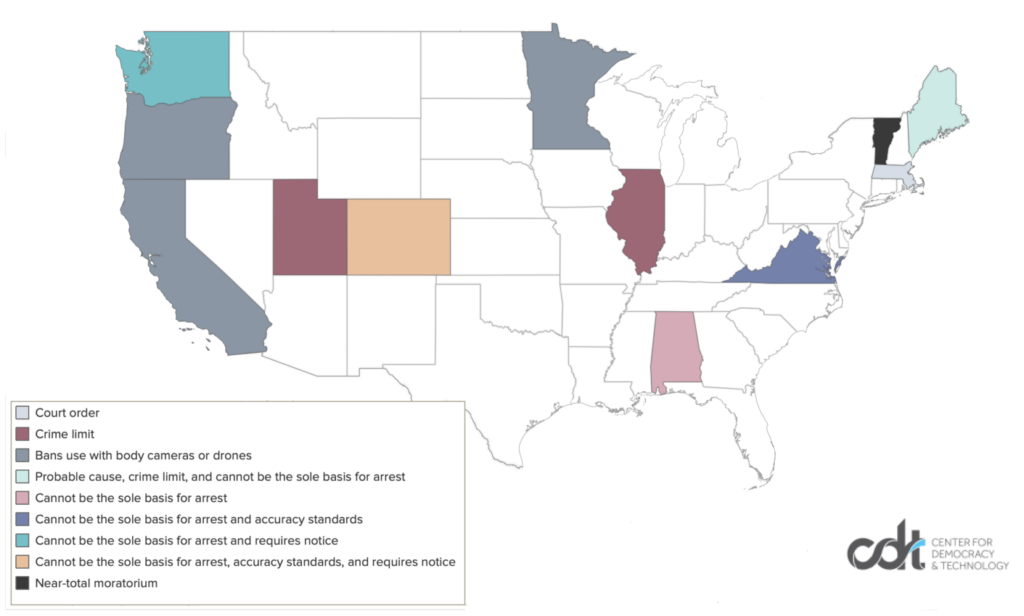Unpacking MTLeg Judicial Proposals
To help our followers better understand these reforms and their current status, Frontier’s Tech & Innovation Policy Analyst, Chris Isaacs unpacks these reforms in his most recent column.
During Montana’s 2023 Legislative Session, legislators have been debating a number of judicial reforms, many of which are still alive and making their way through the process. To help our followers better understand these reforms and their current status, Frontier’s Tech & Innovation Policy Analyst, Chris Isaacs unpacks these reforms in his most recent column.
Judicial reform bills can be broken down along three broad areas of reform: promoting transparency, eliminating conflicts of interest & bias and increasing accountability & oversight.
Promoting Transparency
These reforms aim to tackle the lack of transparency about the beliefs of judicial candidates and their performance once elected.
- HB 464 judicial candidates to indicate their party affiliation or endorsement.
- SB 302 requires judges and justices to identify their party affiliation during the general election and also allows political parties to endorse and support the judge or justice they believe will best serve Montana. As of March 2nd, this bill failed to pass the House.
- SB 709 creates a publicly available display that uses already collected data that indicates a judge’s performance.
- SB 252 expands the code of ethics for elected and government officials and government employees to include judges and justice for the judicial branch.
Eliminating Conflicts of Interest & Bias
These bills aim to reduce bias and conflicts of interest in the courts.
- SB 201 ensures that judges and justices are removed from cases when they have received significant campaign contributions from one of the parties in the case.
- SB 355 requires a judge to be disqualified from a case when one of the parties contributed more than the amount laid out in the bill.
- HB 772 requires a judge or justice to disqualify themselves if a litigant made one or more contributions directly or indirectly that supported or opposed them in the election within the previous six years. As of March 2nd, this bill was tabled in Committee.
Increasing Accountability & Oversight
These judicial reforms are focused on re-establishing the separation of powers through greater accountability and oversight of the judiciary.
- HB 326 seeks to rebalance the JSC, the oversight body for the Judiciary, to ensure greater independent oversight.
- SB 313 aims to increase accountability and ensure transparent oversight of the judiciary by requiring the JSC to disclose certain proceedings publicly.
- SB 440 seeks to ensure interest collected via the interest on lawyer trust account (IOLTA) program is returned to the client.
For Liberty,
Tanner Avery
The Latest
HB 772 requires the recusal of a judge or justice if a litigant made one or more contributions exceeding $350 for Supreme Court races or $200 for district judge races, within the last six years.
HB 777 requires Montana to automatically recognize a license for an behavioral health counselor from another state in the Audio and Speech-Language Pathology Interstate Compact.
SB 440 seeks to ensure interest collected via the interest on lawyer trust account (IOLTA) program is returned to the client.
Reducing Red Tape in Education
HB 21 will be heading to the Governor’s desk soon. This bill increases legislative oversight over the education bureaucracy by requiring any regulations for school accreditation resulting in a “substantial” impact on school expenditures first to earn legislative approval before implementation.
Our Take: The need for education reform has become a bipartisan issue. At roughly $2.4 billion, public school funding takes up a third of Montana’s two-year budget. HB 21 follows Frontier Institute’s recommendations to increase legislative accountability in agency rule-making processes to ensure taxpayer money is not wasted. This bill models successful policies in other states which require economic impact statements for all regulations and legislative approval for economically burdensome regulations.
Graphic of the Week
State policies regarding when state law enforcement can utilize facial recognition technology. Click here to learn more.





